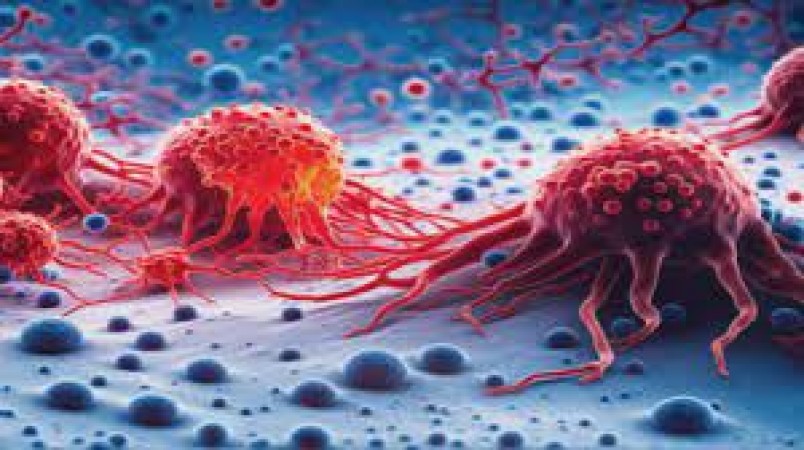
In the vast landscape of health, it's crucial to pay attention to subtle changes that might be early indicators of more significant issues. When it comes to the color of your skin, these changes could be the quiet whispers of blood cancer knocking at your door. Let's delve into the nuances of this potential health indicator and explore how you can identify the signs.
Blood cancer, encompassing a group of diseases affecting the blood, bone marrow, and lymphatic system, manifests in diverse ways. One intriguing yet often overlooked sign is the change in skin color, offering valuable insights into potential health concerns.
Skin, the body's largest organ, can serve as a canvas that reflects internal health. In the context of blood cancer, changes in skin pigmentation can be a vital clue.
One of the early signs of blood cancer is paleness. If your skin loses its usual rosy hue and takes on a paler tone, it could be a signal that your blood might not be as robust as it should be. This paleness is a result of decreased red blood cell production, a common occurrence in blood cancers.
Blood cancer can interfere with your body's ability to clot properly, leading to noticeable and unexplained bruising. If you find yourself bruising more easily or without apparent cause, it might be an indication that your blood is not coagulating as efficiently as it should.
While not a direct symptom, blood cancer can sometimes manifest through red spots or rashes. These skin manifestations may indicate an underlying issue that requires attention, and they shouldn't be ignored.
Blood cancer is not confined to the skin's surface; it significantly impacts the body's internal workings. Understanding these deeper changes is crucial for early detection and intervention.
An unexplained and persistent fatigue might be a consequence of blood cancer. The disease can impact your body's ability to produce healthy blood cells, leading to a lack of energy. If you find yourself chronically tired, it's worth investigating the root cause.
Changes in blood composition can affect oxygen levels in the body, leading to shortness of breath. If this symptom arises unexpectedly, it's essential to explore potential connections to blood-related issues.
Blood cancer can compromise the immune system, making you more susceptible to infections. If you notice an increase in the frequency of illnesses, it's time to consider the possibility of an underlying blood-related issue.
If you observe any of these signs, it's imperative to consult a healthcare professional promptly. Early detection of blood cancer significantly improves the chances of successful treatment. Your doctor can perform a thorough examination and recommend further tests to ascertain the presence of any blood-related abnormalities.
Diagnostic tests play a pivotal role in confirming or ruling out the presence of blood cancer. These may include blood tests, bone marrow biopsies, and imaging studies. Each test provides valuable information to guide accurate diagnosis and subsequent treatment plans.
If diagnosed with blood cancer, the treatment approach will be tailored to the specific type and stage of the disease. Options may include chemotherapy, radiation therapy, immunotherapy, and stem cell transplantation. Collaborate closely with your healthcare team to determine the most effective treatment plan for your unique situation.
Coping with a blood cancer diagnosis can be emotionally challenging. Seek support from friends, family, and support groups to navigate this journey. Emotional well-being is a crucial aspect of holistic healing.
While not all cases of blood cancer can be prevented, adopting a healthy lifestyle can contribute to overall well-being. Maintain a balanced diet rich in nutrients, engage in regular exercise, and avoid harmful habits such as smoking. These lifestyle choices promote a robust immune system and support overall health.
Regular health check-ups are fundamental for the early detection of any abnormalities. Routine blood tests and comprehensive health screenings can provide valuable insights into your overall health and enable timely intervention if needed.
Raise awareness in your community about the signs and symptoms of blood cancer. Knowledge is a powerful tool in the fight against this disease. Organize educational events, distribute informational materials, and encourage open discussions to empower individuals to recognize potential warning signs.
Support educational initiatives that aim to break the silence surrounding blood cancer. Collaborate with healthcare organizations, schools, and community groups to disseminate information about blood cancer prevention, early detection, and available resources.
If you or a loved one has faced blood cancer, sharing your story can inspire others to seek early detection and treatment. Personal narratives humanize the journey, providing comfort and encouragement to those going through similar experiences.
Connect with others who have experienced blood cancer through support groups and online communities. Building a support network can provide invaluable insights, guidance, and emotional strength during challenging times. Sharing experiences fosters a sense of community and mutual support.
Contributing to research initiatives and fundraising for blood cancer can aid in developing new treatments and improving outcomes for those affected. Stay informed about ongoing research projects and clinical trials, and consider participating or supporting these endeavors to contribute to advancements in the field.
Stay abreast of the latest advancements in blood cancer treatment. Knowledge about new therapies, emerging technologies, and breakthroughs in medical research can empower individuals and healthcare professionals alike. Being informed allows for more informed decisions regarding treatment options.
While a blood cancer diagnosis can be daunting, advancements in medical research and treatment offer hope for improved outcomes and quality of life. Explore and discuss treatment options with your healthcare team, and embrace a positive mindset to navigate the journey ahead.
On this journey, celebrate resilience, courage, and the human spirit. Each individual facing blood cancer is a testament to strength and perseverance. Acknowledge and celebrate milestones, no matter how small, and find inspiration in the stories of resilience within the blood cancer community.
Pakistan Secures Vice Chair Post at UNESCO, Defeating India by 10 Votes
Indian Diaspora in Dubai Extends a Warm Welcome to PM Modi at COP28 Summit